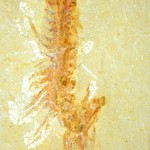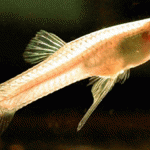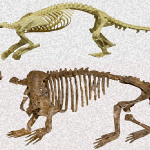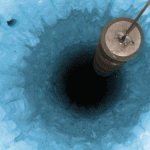Researchers from the universities of Oxford and Leicester, in the UK, and from Yunnan University, China, discovered a well-preserved fossil that provides new information on primitive sea creatures and their evolution.
The 525-million-year-old creature belongs to the pterobranch hemichordate, a group related to starfishes and sea urchins. These animals secrete a substance that builds up into a hard tube around their soft body.
The minuscule fossil (it measures less than 4 centimetres) has 36 tiny tentacles — which might have been useful to catch plankton — and one feathery arm. Since it is so well preserved, the Galeaplumosus abilus (“feathered helmet from beyond the clouds”) offers clues to the evolution of the earliest vertebrates.
Professor David Siveter, from the University of Leicester, said on the press release: “Amazingly, it has exceptionally preserved soft tissue — including arms and tentacles used for feeding — giving unrivalled insight into the ancient biology of the group.”
Further study of this fossil will help us understand the prehistoric ocean and its evolution.








